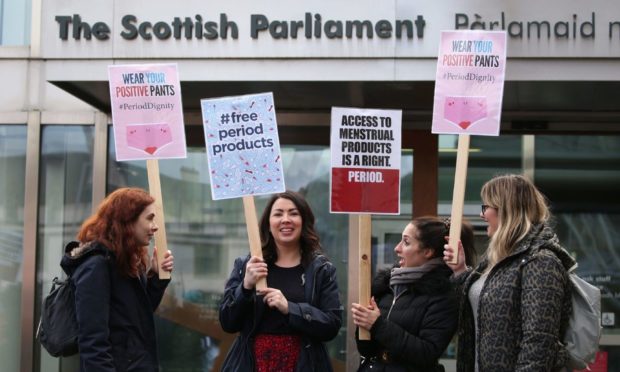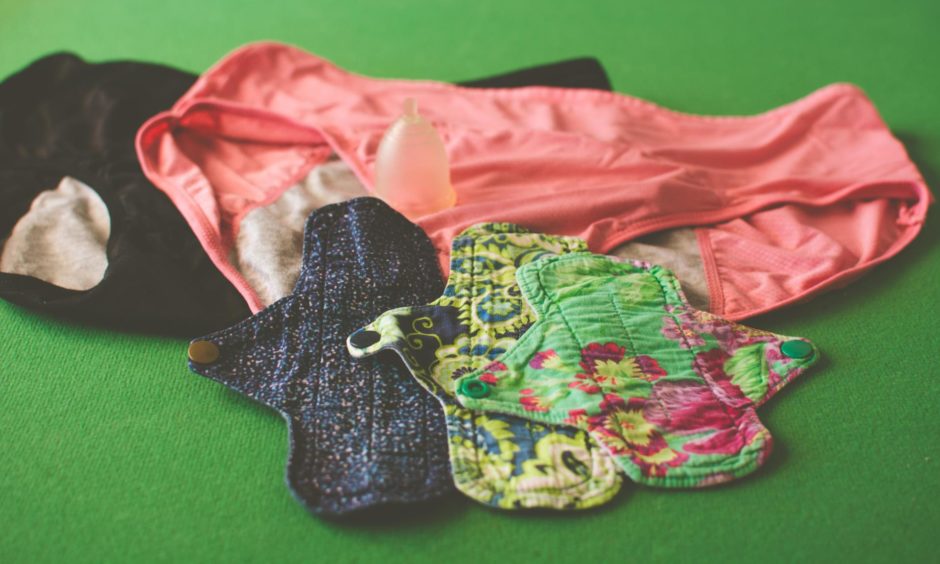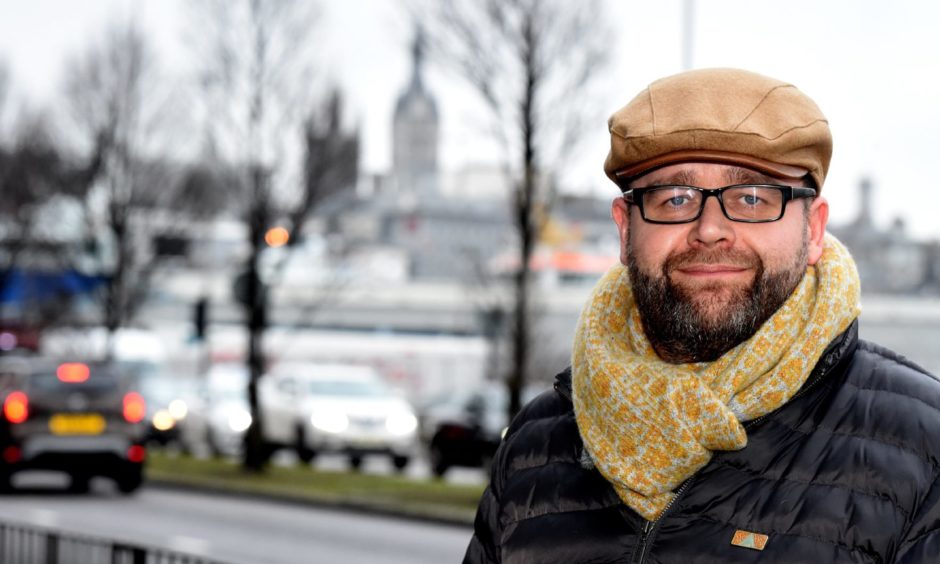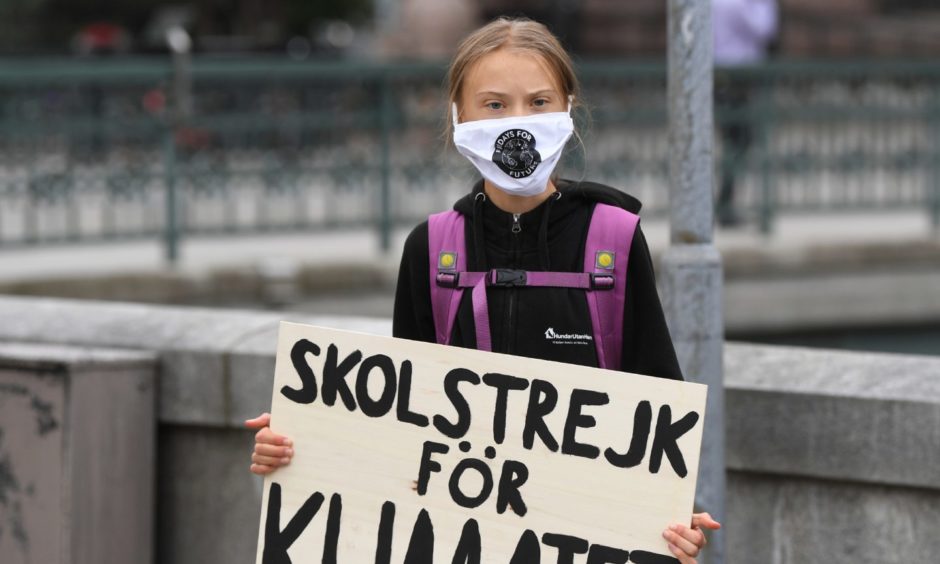Scottish Labour leadership hopeful Monica Lennon says landmark legislation she led through parliament to make period products freely available to all presents a “framework” to offer plastic-free options.
Scotland became the first country in the world to introduce free universal access to period products when Ms Lennon’s bill passed through parliament last year.
The legislation, which gained cross-party support, makes it a legal requirement for sanitary products, including tampons and towels, to be provided free of charge to anyone who needs them.
It comes as Aberdeen leads the way on promoting environmentally-friendly sanitary products, with an information campaign launching soon at a primary school in the city, spearheaded by social enterprise Community Food Initiatives (Cfine).
This builds on the organisation’s success in offering free sanitary products to women and girls from low-income homes as part of a Scottish Government pilot in 2017.
Dignity, choice and sustainability
Ms Lennon’s says her bill is about “respecting choice”, with women and girls often having different reasons and preferences for using a particular product.
However, some have argued that if Scotland is serious about the effects of climate change then it must consider the environmental impact of single-use sanitary products.
An average 427 million single-use period products are disposed of in Scotland every year, with an average woman using 11,000 disposable products in her lifetime.
Ms Lennon says: “It’s personal choice whether you want to use something like a menstrual cup.
“For me, it’s always been about dignity and choice but sustainability is one of the things we consulted on.
“In terms of the legislation itself, there is opportunity there to promote reusable products and plastic-free products.”
Public demand
The legislation also emerged amid calls for costs to be kept down, with reusable products, such as menstrual cups, having a higher upfront cost but longer lifespan than single-use products.
Ms Lennon says work is already under way on promoting reusable products across Scotland, with the Scottish Government working with Hey Girls, a social enterprise that has been supplying reusables.
Under the legislation, it is up to local authorities to deliver the scheme and they can opt to include reusable products.
Ms Lennon, who has been contacted by people across the world about her legislation, adds: “The bill creates a framework to allow people who want to use reusable products to be able to access that.
“In time that (the switch to plastic-free products) might be something we need to think about in regulation in order to do that.
“We’ve seen successful campaigns around cotton buds, plastic straws, so there’s clearly public demand for plastic-free products.
“One to watch, I guess.”
Aberdeen leads the way
In Aberdeen the prominence of reusable period products is poised to increase, with a new pilot about to launch in Cornhill Primary School.
Councillor Tauqeer Malik, vice-convener of the city council’s education committee, said: “Aberdeen City Council has been at the forefront of tackling period poverty and we are proud that we invested £40,000, over and above national funding, in a free distribution scheme across Aberdeen schools to ensure the dignity and wellbeing of our young people is enhanced.
“We have also been delighted to partner local charity and social enterprise Cfine in providing school pupils with free sanitary products during the Covid-19 pandemic.”
Social enterprise Cfine has teamed up with Aberdeen City Council, the Scottish Government, Fareshare and Nescol to raise awareness about reusable period products, following its successful pilot to provide free sanitary items to women and girls from low-income homes.
The project, which was due to launch in February but has been delayed until schools reopen, will see primary six and seven pupils, both girls and boys, given lessons on reusable items, including where they can get them and how they are used.
Sean McVeigh, development worker at Cfine, is involved in organising the project, which he says is about “tackling stigma”.
He says: “Promotion of the reusable products has become quite a big part of what we do now.
“Young people are really quite switched on now when it comes to the environment.
“I think they’re going to be a huge part of our target audience going forward because they’re just going to be starting menstruation so they’ve got a lifetime to look at that.
“So we’re hopeful to encourage younger people and using that movement that Greta Thunberg has inspired in young people.”
‘Really good success’
Lockdown has had a “big effect” in uptake for the reusable products they deliver across the city, with particular success over the summer.
Over the last year the organisation has given out nearly 450 reusable products but its goal is to increase the uptake of reusables by 2,000 over the course of the year.
Mr McVeigh adds: “Part of it, I think, is maybe people are not willing to try them if they’re going to work.
“If they’re at home they’re a bit more comfortable trying them so that’s a really good success.
“We want to build a model that can the be repeated throughout Scotland and brought into the Curriculum for Excellence.”













